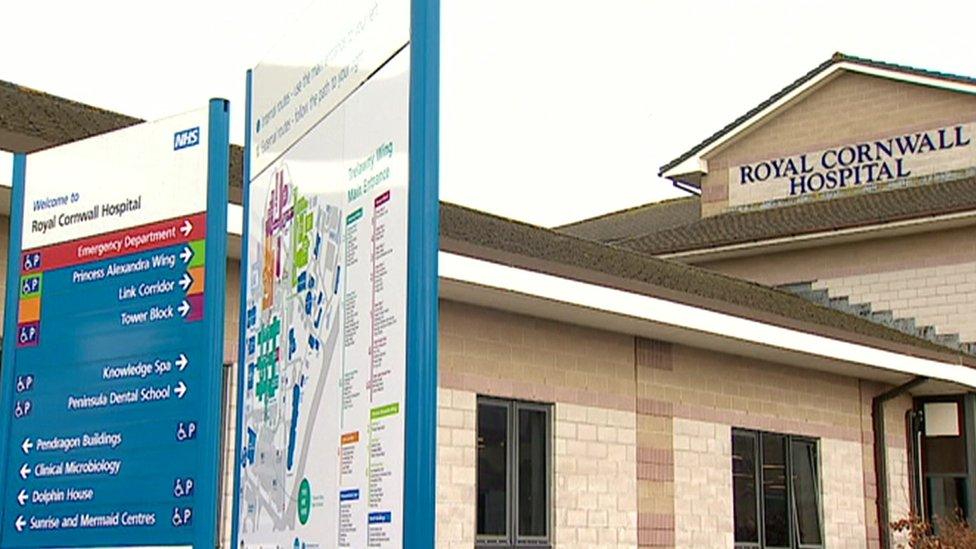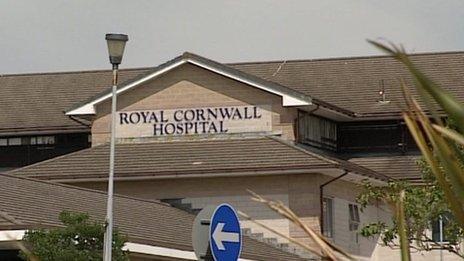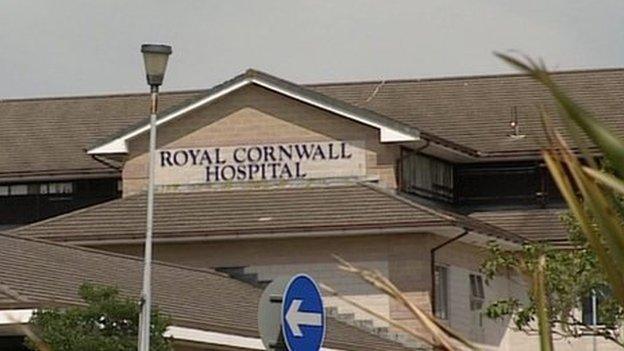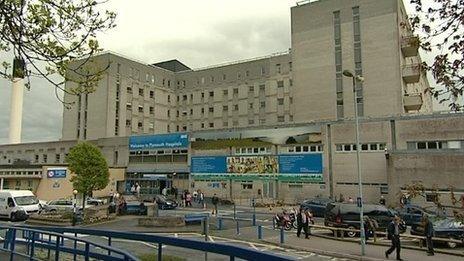Bed-blocking crisis 'not going away' in Cornwall
- Published

The Royal Cornwall Hospital is suffering from bed-blocking
Hospital bed-blocking in Cornwall is at its highest point over the last 12 months and is "not going away".
The 410 bed days lost due to delays in ongoing care packages in September was five times the target figure.
The situation is likely to remain for "a considerable period" according to Jim McKenna, the Cornwall Council cabinet member responsible for health.
However, health bosses said the situation was expected to improve with pressure easing on some services.
Black alerts
Cornwall Council papers, external show 18 patients had their discharge delayed from acute hospitals in September because of problems with care packages. The target figure was four.
See the latest on this story at BBC Local Live
At community hospitals 32 patients had their discharge delayed against a target of 15.
Speaking at a Cornwall Council cabinet meeting Mr McKenna said: "This is not something that is going to go away... That is likely to be the position for a considerable period over the winter."
He said the issue of bed-blocking required "more resources across the healthcare system".
Bed-blocking was a key element in Royal Cornwall Hospital declaring "black alert" twice in 2015, where services are unable to cope with demand.
The hospital is currently on standby to declare another alert.
Dr Iain Chorlton, chairman of NHS Kernow which buys in health services for Cornwall, said it was working with "colleagues in health, social care and the voluntary sector" to enable people to get the care they need "quickly and safely".
He said as plans to integrate health and social care continue the situation "will improve and demand on some services will ease".
"The majority of patients are receiving high quality care and are being discharged from hospital in a timely manner.
"We apologise to those patients who faced delays being discharged."
- Published8 April 2015

- Published6 April 2015

- Published25 February 2015

- Published24 February 2015

- Published17 February 2015
